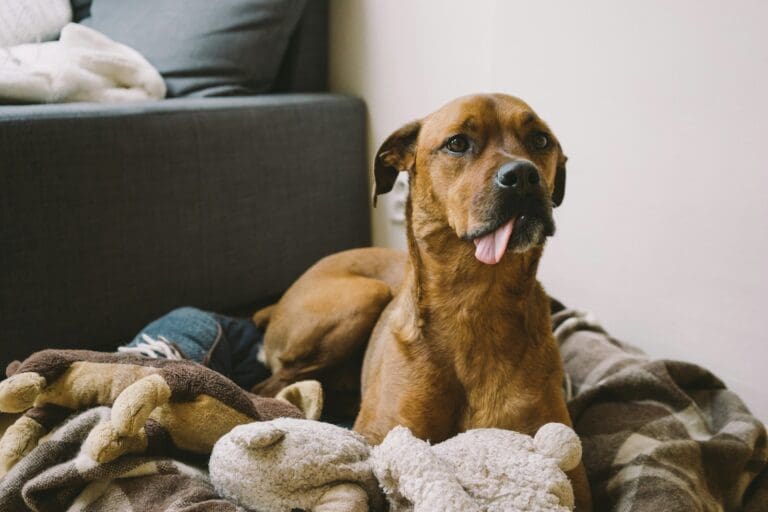The weather is warming up, the trees are green again, and bugs are returning in full force. That’s right: it’s flea and tick season. If you want to keep your furry four-legged pals from scratching all summer, try using these ten flea and tick prevention tips.
Collars
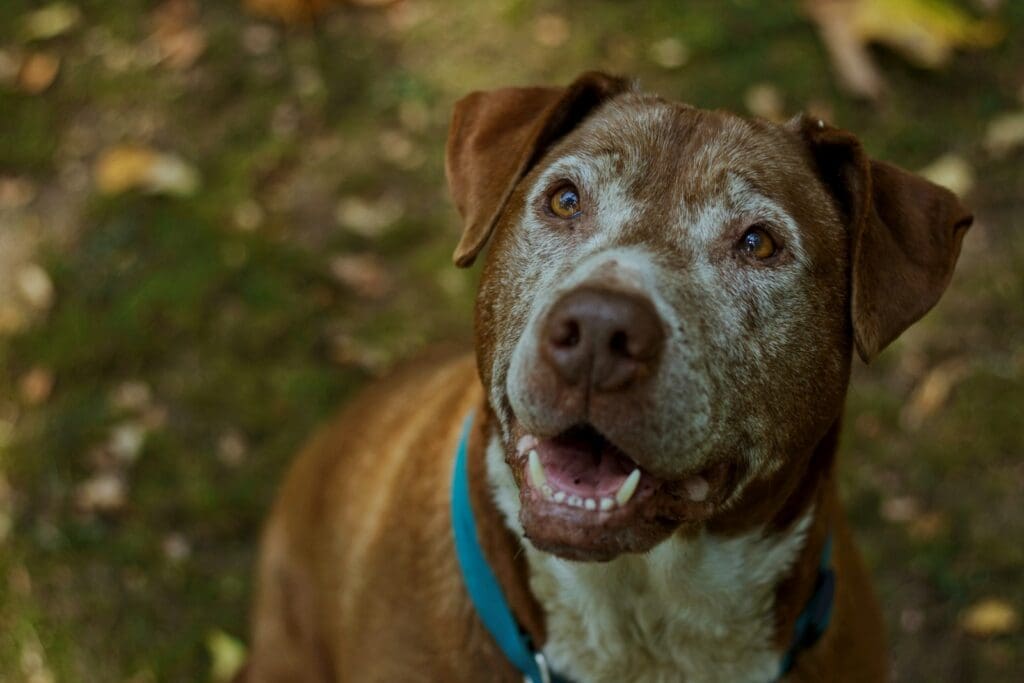
Flea collars can help keep fleas from taking hold in your dog’s coat. Just be careful when you buy a collar: make sure it’s for the right size of dog. Moreover, be wary of fake flea collars. They’re annoyingly common, and since the collars can cost a lot of money, getting a fake is a serious letdown.
Topical
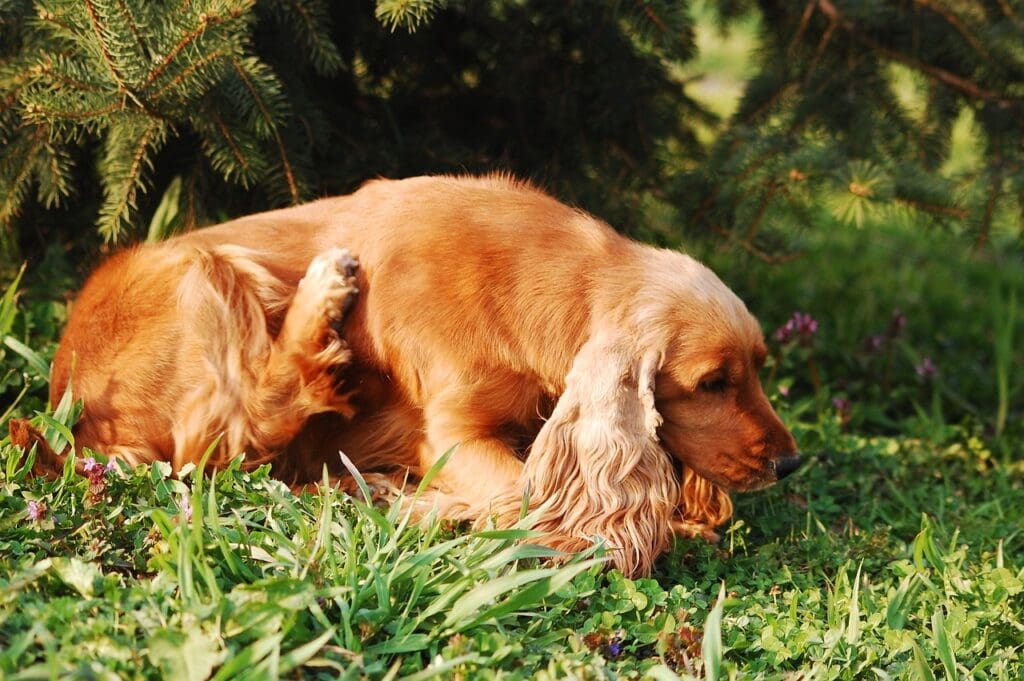
Some topical medications can handle an existing flea or tick problem. Once again, make sure you get the right kind of product. Never use cat flea or tick medications for a dog, even if they’re more affordable. Also make sure you’re getting medications that specify the size of dog you have. Smaller dogs can get sick from using large dog medicines, and large dogs won’t be cured of their fleas or ticks by using small dog medication.
Walk in Clear Areas
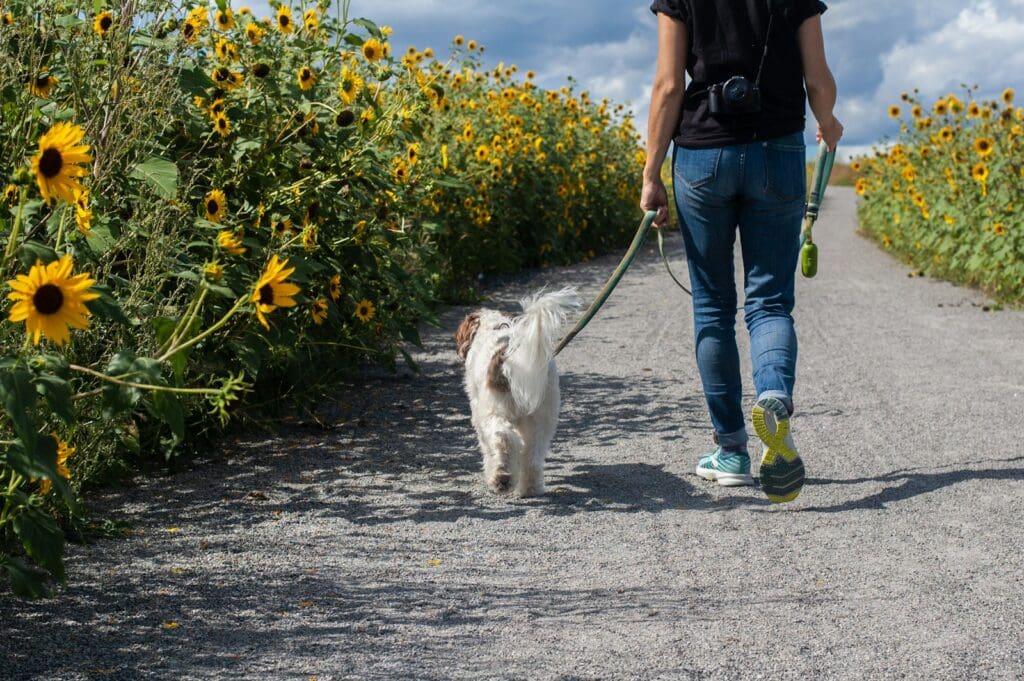
One way to prevent tick infestations to begin with is to avoid walking in densely forested areas. Stick to clear paths with short grass and minimal tree cover. When your dog walks through a heavily overgrown area, they have a high chance of getting ticks or fleas on their coats.
Outdoor Dog Bed
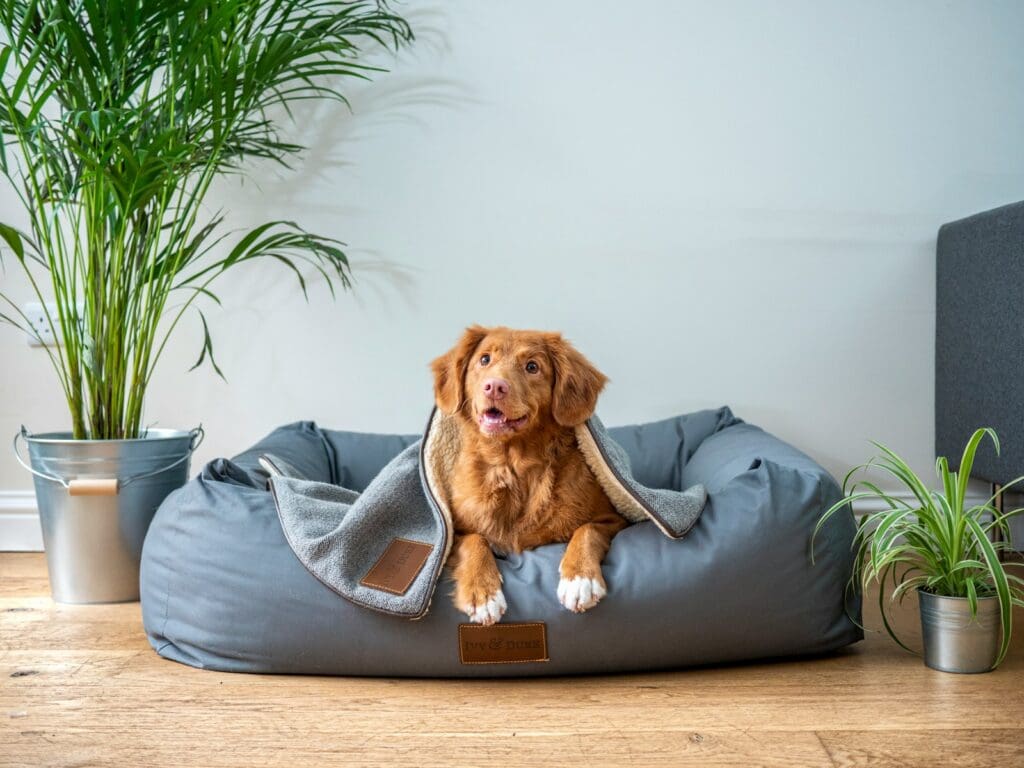
Get your dog a bed for use outdoors. For one thing, they’ll be more comfortable sleeping on a bed than on the hard ground. For another thing, they’ll be less likely to get fleas or ticks if they’re not directly touching the grass.
Keep Grass Short
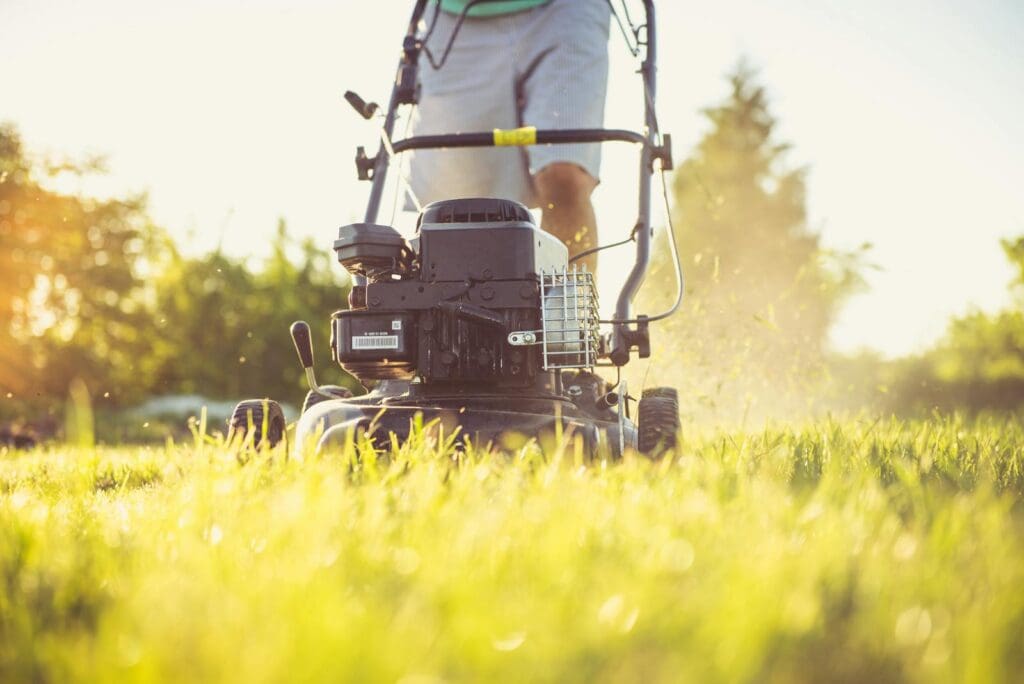
Maintain your lawn diligently and keep your grass as short as you can. This will give pests little room to hide and prevent your dog from getting ticks from the grass. Notably, short grass can sometimes be better for fleas, as their natural predators like spiders won’t hunt in short grass. That’s why taking several steps at once to stop both fleas and ticks is important.
Keep it Clean

Keep your house clean. Vacuum often, clean clothes and bedsheets regularly, and don’t let trash pile up. This will help your mental health, for one thing, but it can also help your pet’s physical health. Fleas like to lay eggs in soft fabric like carpets and couches, so make sure you’re consistently vacuuming to eliminate any eggs. While you’re at it, dump the vacuum bag outside to prevent the eggs from hatching inside your garbage can.
Treat all Your Pets at Once

If you’ve got a flea or tick outbreak among your pets, treat all of them at once. Even if one dog is scratching a lot more than the others, treating just that one pup only makes things tougher for the other dogs. And, as soon as the initial treatment wears off, the pests will just jump back to the dog you did treat.
Read More: The Pros and Cons of Letting Your Dog Sleep in Bed with You
Treat Your House, Too
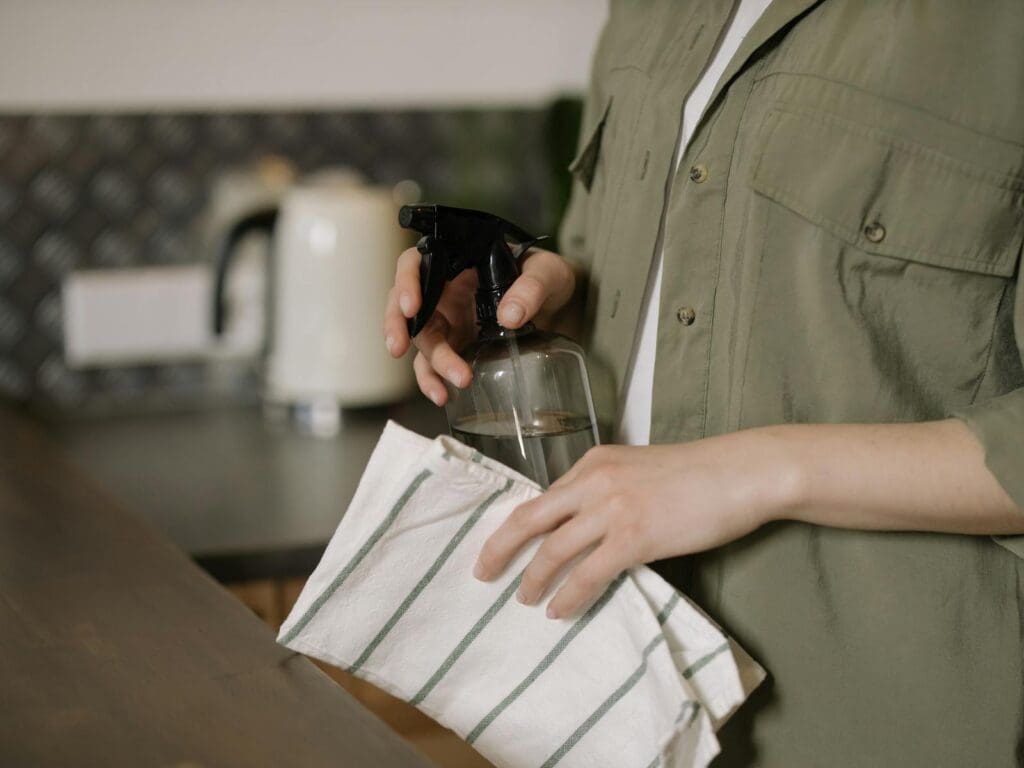
When you treat your pets for fleas or ticks, you need to also treat your house. Even if you’re already keeping things clean, go ahead and get flea spray to treat your furniture and carpets just to be safe. Recurrent infestations are more than just annoying, they’re costly and can undermine all the hard work (and money) you’ve already invested into getting rid of the bugs.
Read More: Why You Should Consider an Elevated Dog Bed
Check Often

Check your pets for fleas and ticks often. Even if they haven’t been outside much or the weather has been cold, you never know when a few pests might have snuck under their fur. The sooner you get these pests off your dog, the lower the chance is for them to contract secondary diseases from the nasty little insects.
Read More: 10 Essential Dog Hiking Tips for Outdoor Lovers


